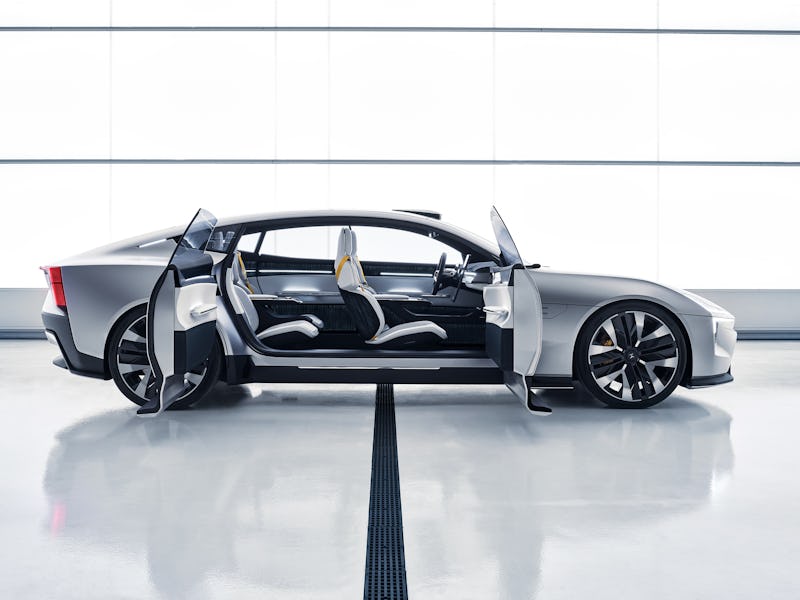Polestar: Tesla competitor is set to take on one of rival’s best ideas
The emerging electric car brand is set to expand in China, employing a key Tesla strategy.

Polestar, the electric car brand, is set to take on one of Tesla's best business strategies.
On Tuesday, Reuters reported that the brand is set to massively expand its network of showrooms in mainland China, expanding from just one showroom in Beijing to 20 in the third quarter of this year. It's part of Polestar's strategy to sell directly to consumers, similar to Tesla and a handful of other electric car brands.
The plan stands in stark contrast to traditional automakers, and represents one of the big ways that these new electric car firms are pushing people to make the switch. Tesla started selling electric cars in 2008 when it launched the Roadster, but from day one it's avoided the traditional dealerships favored by big names like Ford and General Motors.
It comes at a key time for Polestar, a brand jointly owned by Volvo Car Group and Zhejiang Geely Holding. The Polestar 2, unveiled in February 2019, is an entry-level vehicle designed to compete with the Tesla Model 3. Manufacturing started in China earlier this year and plans to ship in July, with exports also planned for Europe and the United States.
Direct-to-consumer sales can help sell these unique vehicles to otherwise-unaware consumers. In a 2012 blog post, Tesla CEO Elon Musk explained that this strategy is critical for ensuring the firm can bring gas car drivers over to electric cars. As most people that visit a dealership know which brand they already want, a dealership visit is typically more about negotiating price than learning about new brands. A Tesla-only store helps the firm communicate the unique qualities of its vehicles, without leaving it to a third party that has less incentive to sell Tesla's cars.
Musk explained further:
"Existing franchise dealers have a fundamental conflict of interest between selling gasoline cars, which constitute the vast majority of their business, and selling the new technology of electric cars. It is impossible for them to explain the advantages of going electric without simultaneously undermining their traditional business. This would leave the electric car without a fair opportunity to make its case to an unfamiliar public."
One of the big issues around this strategy is it means greater upfront costs for the automaker. Polestar, Reuters reports, aims to sidestep this issue by giving investors the responsibility to build and operate the showrooms. The brand is planning to first open showrooms in Shanghai before moving on to Ningbo, Tianjin and Guangzhou. Most of them will be in shopping malls.
The Polestar 2.
It sounds like a large number of outlets, but Polestar will be behind versus the competition. Tesla operates 50 outlets in China, Nio operates 110, and Xpeng has 150 now and a further 50 planned for this year.
The Inverse analysis – The electric vehicle still has a long way to go before it can claim the majority of cars on the road, so there's still a lot of communication left to do.
While Tesla's model had been popular with fans, the firm announced in February 2019 that it would close almost all of its stores and move to a more online model. Fans criticized the move, as the stores are an easy way of getting Tesla-skeptics behind a wheel and alleviating their concerns about electric vehicles. Tesla reversed its decision and announced it would only close half the stores.
On the Polestar side, the firm has big plans for the future. The Precept concept, unveiled in April, demonstrated a series of new ideas like advanced driver assistance, rear view cameras and recycled materials. A showroom could help explain ideas like these as they filter into the firm's shipping vehicles.